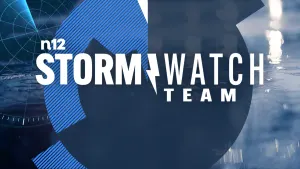More Stories
With the remnants of Debby expected to bring risks of flooding, power outages and even the chance of tornadoes to Connecticut on Friday night, local officials say now is the time to start getting ready.
"There's really nothing we can do to stop it, but what we can do is be prepared," says the Town of Westport's fire chief and emergency management director Nick Marsan.
To do that, Marsan says it's best to do what his office does, and "think about what are the potential emergency situations that could arise."
In this case - he says it means having a "home prep kit" - in case you get stuck for a few days without power.
"Stock up on some medication, make sure your phones are charged, perhaps invest in one of those small battery packs that you can charge your phone once or twice with," Marsan explains. "If you have pets, make sure you have pet food."
And if you live somewhere that floods, Marsan says to make sure you know how to get out, which signing up for your town's emergency communications system can help with, since "that gives us an opportunity when there's an impending threat to let people know, and then we tell them what they can do to avoid being a victim to it" with texts, emails and phone calls.
If power does go out, Eversource says they are bringing in extra workers and will have crews in position to help restore.
Meanwhile, if you have a generator in your home, Paul Bonomo, the president of Cannondale Generators in Wilton, says that no matter how bad out it is, "you have to run a generator outdoors. So if that means opening up your garage and just putting it five to 10 feet outside your garage, because if it's in any kind of contained space, it can get carbon monoxide, which can be deadly."
Bonomo says for that same reason, you need to make sure the generator's exhaust is pointed away from the opening it was wheeled out of, and also recommends making sure all carbon monoxide detectors have been tested
Generators should also be turned on and tested at least once a season according to Bonomo, that way you're not scrambling last minute to try to get it fixed.
Marsan says that is especially true during the storm, since his biggest advice is simple: "If you don't have to go outside, don't go outside."
"If you have to go out, don't drive through flooded streets, treat every wire on the ground as if it's live," he adds.
Even if the impacts of this storm end up being minor, the next one might not be.
The National Oceanic and Atmospheric Administration just updated its 2024 model, predicting the area could get between six and 11 more hurricanes before the season ends in November.
More from News 12
1:28

Storm Watch: Heavy rain and gusty winds to make mess of Friday morning commute
2:33

Sadly, we will miss the peak of the Geminid meteor shower this year, but we'll get snow instead!
2:07

Morning showers exit before sunny and breezy Monday afternoon in Connecticut
2:15

Bridgeport’s Jamaican community reacts to Hurricane Melissa heading to their homeland
1:58

Warm weather lingers in Connecticut; cooler air arrives midweek
